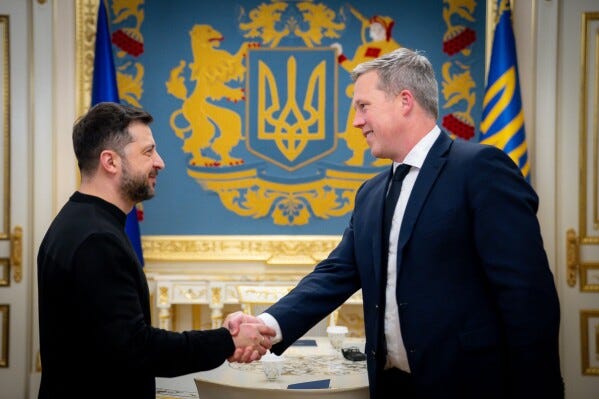The Pacification Trap: Why the Proposed ‘Peace’ Is Merely a Pause in Conquest
I look at the new 28-point plan not as a political document, but as a moral test. Are we confusing the quiet of the graveyard with the peace of the living?
What Is the Distinction Between Peace and Pacification?
I have been thinking a lot lately about the words we use to hide the truth from ourselves. We crave ‘peace’ so desperately—and understandably—that we are often willing to accept a counterfeit version of it just to quiet the noise. But looking at the 28-point ultimatum delivered to Ukraine, I am struck by how it conflates peace with pacification. The Roman historian Tacitus identified this deception nearly two thousand years ago.
To ravage, to slaughter, to usurp under false titles, they call empire; and where they make a desert, they call it peace.
– Tacitus, ‘Agricola’
This proposal feels like the modern administrative equivalent of making a desert. It asks a sovereign people to lay down their agency in exchange for survival. That isn’t peace; that is a hostage negotiation where the hostage is blamed for the standoff.
Does the 28-Point Plan Serve the Architect or the Victim?
When you read the fine print, you realize this isn’t about what is just; it is about what is convenient. The pressure being applied to Kyiv is the pressure of a world tired of paying attention, tired of funding a defense, and eager to return to business as usual. The tragedy of this moment is that we are witnessing the normalization of the idea that a victim’s right to exist is negotiable if the aggressor is persistent enough. The plan treats the invasion not as a crime, but as a dispute over real estate. It serves the architects in Washington and the conquerors in Moscow, but it leaves the people on the ground with a broken country and a future dictated by foreign capitals.
Can Sovereignty Survive Without the Capacity for Defense?
I worry that we are forgetting what sovereignty actually means. It isn’t just a flag or a seat at the UN; it is the capacity to say ‘no.’ This proposal strips that away. It essentially tells Ukraine, ‘You may exist, but only in the shape that we and your enemy agree upon.’ This reminds me of the terrifying insight from Baruch Spinoza regarding the nature of the state and civil obedience.
Peace is not an absence of war, it is a virtue, a state of mind, a disposition for benevolence, confidence, justice.
– Baruch Spinoza, ‘Theological-Political Treatise’
If the ‘peace’ offered is built on fear, coercion, and the removal of the capacity for self-defense, it lacks the virtue Spinoza speaks of. It is merely a pause in the violence, a deep breath before the next assault.
Go Deeper
Step beyond the surface. Unlock The Third Citizen’s full library of deep guides and frameworks — now with 10% off the annual plan for new members.
Is the Silence of the Guns Worth the Price of Justice?
This is the question that keeps me up at night. It is easy for me, sitting in safety, to critique a plan that stops the shelling. Who am I to tell a soldier to keep fighting? And yet, if we accept this—if we accept that might makes right—we are accepting a world where no one is safe. We are trading the difficult reality of resistance for the seductive illusion of order. We are telling ourselves that because the guns are silent, the problem is solved. But the problem is not the noise of the war; the problem is the imperial hunger that started it. And hunger, once fed by appeasement, only grows.



